For our friends at Dementia Adventure (who we’re supporting with 5% of our online sales this February), nature is a lifeline. They see the brain-healing benefits of time in nature first-hand; read on to learn more about the science of how important daily connection with the natural world can be...
In 1984 a study found that patients in a hospital who had a view of nature recovered faster. Scientists have studied the health benefits of nature ever since, and have discovered it’s not just being in nature that makes a difference, but also how we connect and interact with it.
Nature is intrinsic to our physical, emotional and mental wellbeing. It has a unique ability to calm our stress levels, increase our creativity, empathy and our sense of wonder and improve our social interactions and communication. Even small connections with nature can help reduce feelings of loneliness, isolation and anxiety, and bring significant health benefits.

About dementia
Dementia is an umbrella term used to describe the different conditions that cause a decline in brain function. Many of these conditions are associated with a build-up of proteins in the brain, like Alzheimers.
Dementia can slow down and block messages passing through the brain, along our neural pathways, causing issues with our concentration, memory and senses, also creating other symptoms. However, when we keep our brain stimulated, it strengthens our neural pathways, even creating new connections.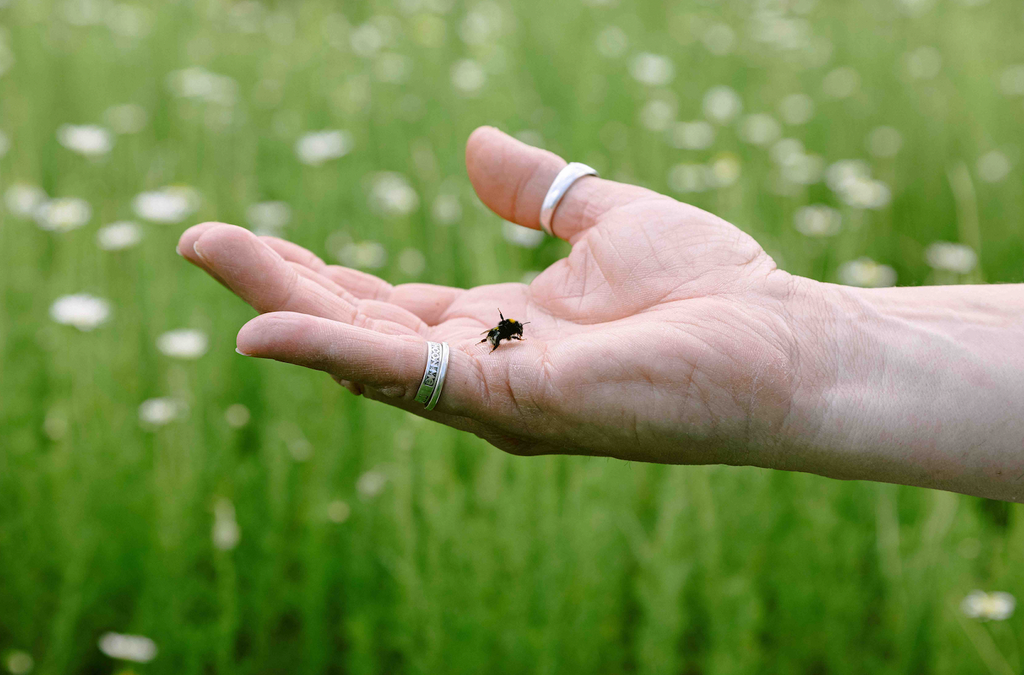
Nature and the brain
For people with dementia, research shows that meaningful outdoor activity and connection with the natural environment can have a positive effect and can slow down the progression of the symptoms. But time in nature has positive effects for everyone, too. Let’s look at how:
Activity
Just 20 minutes of movement outside can stimulate the brain, releasing hormones that provide the right environment for the growth of new cells.
Outdoor activity also promotes brain plasticity by stimulating new connections between cells in the cortical parts of our brain which are responsible for speech, processing, interpreting sensory stimulation, coordination, problem solving, emotional reasoning and complex thought.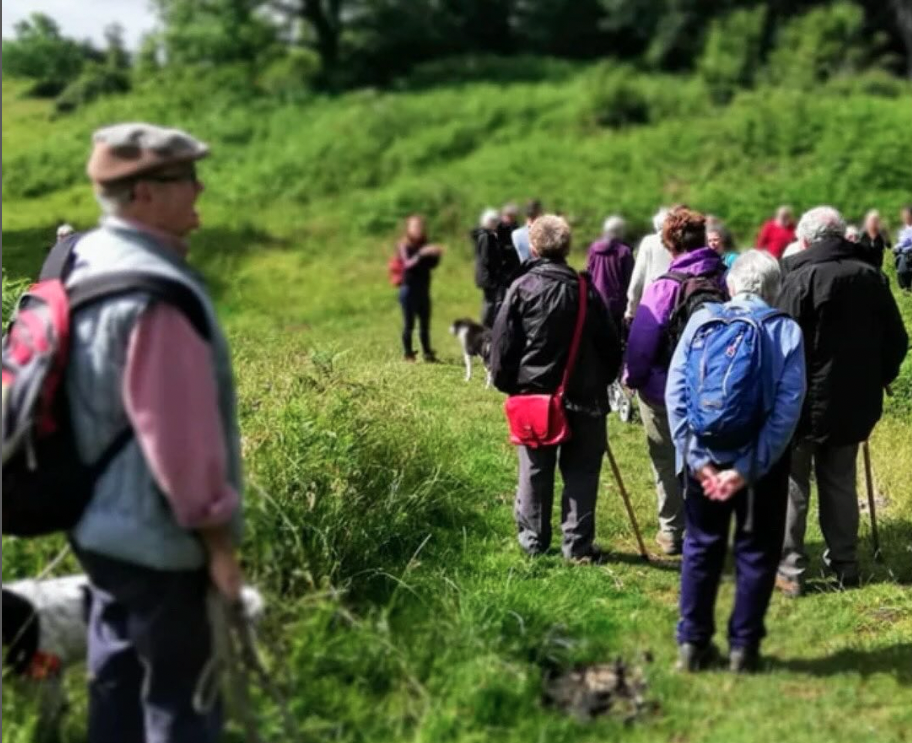
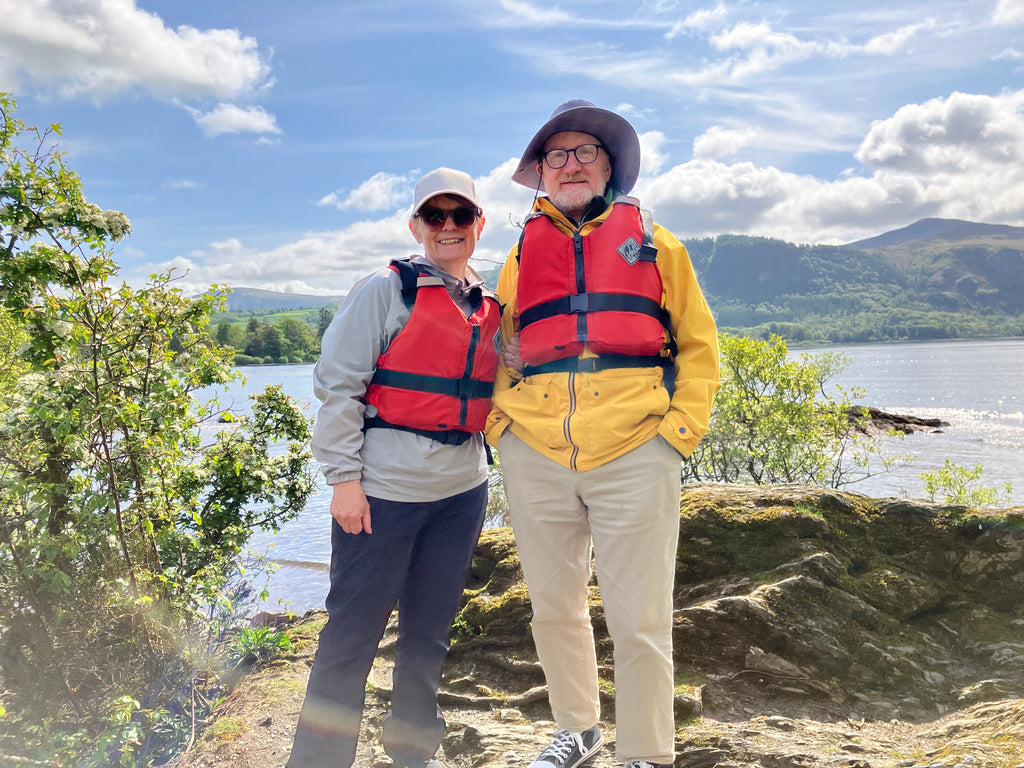
Above images from Dementia Adventure
Fresh air and light
When you are outside, you’re exposed to 33–66 times the amount of natural light that you receive indoors. Being in the fresh air also increases the amount of oxygen we take in.
Both light and oxygen are essential to the function of our brains, which is one of the biggest users of oxygen in the human body. One of the major ways light and oxygen support our brain is by regulating our circadian rhythms which affect our sleep, alertness and appetite.
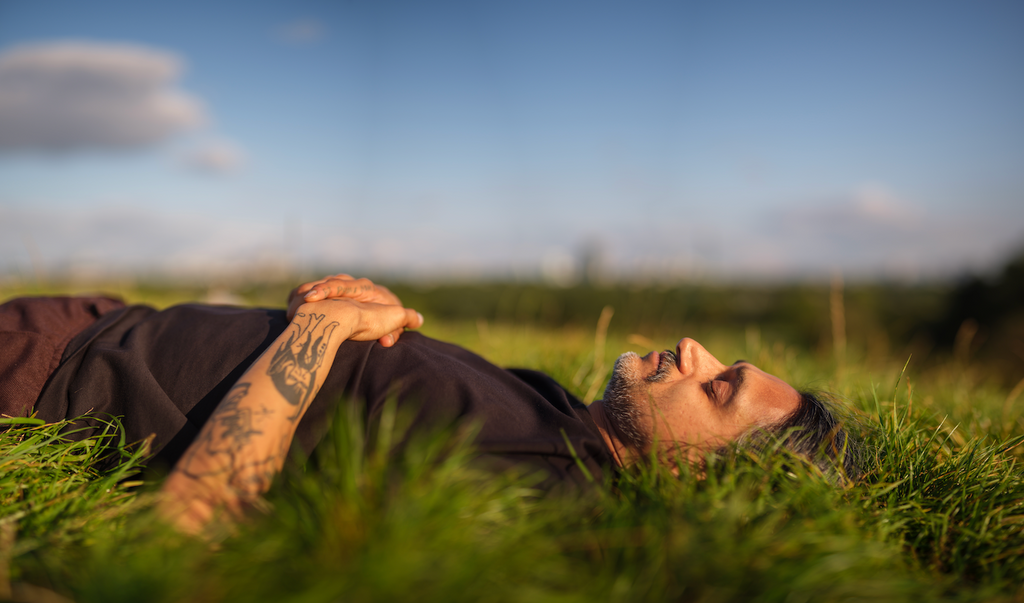
Image by Danny North, from his Warm Glow portrait series for land&water
Chemical reaction
It’s well known that connection to nature, and being outdoors, gives our mood and mental health a boost. This is because of the release of ‘happy hormones’ and neurotransmitters: serotonin, dopamine, oxytocin, and endorphins.
Neurotransmitters like endorphins are associated with feelings of pleasure, love and happiness, but they also reduce depression and anxiety and assist with learning, memory, motor system function, and essential processes like heart rate and digestion.
A less well-known fact is that some trees and plants also release chemicals that have benefits to our health, for example pinene which is a type of terpene and helps us to breathe more easily, allowing more air (and oxygen) into the lungs, and therefore the brain. It also has anti-inflammatory effects.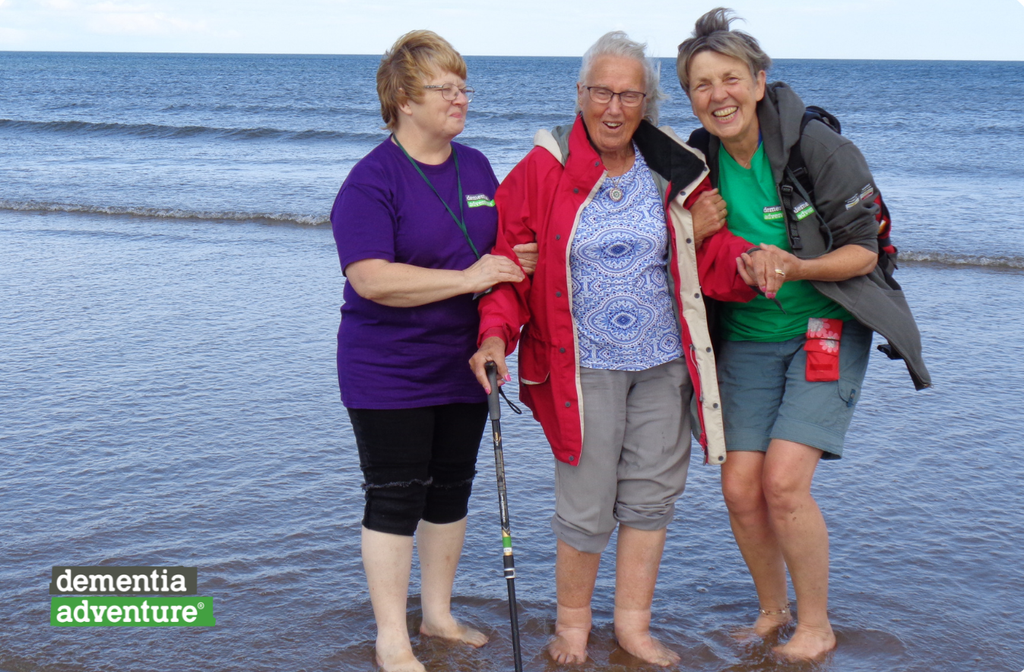
The lasting power of feelings
The Hippocampus is the part of the brain responsible for factual short term memory. This is the part that is often first affected by dementia.
The Amygdala holds your emotional memory and is often not affected by dementia at all. This means that even if someone can’t remember what activity they took part in, the feeling of wellbeing and the emotional feeling can remain with them for a long time.
It’s tempting to think it’s not worth going to the effort of taking someone with dementia outside because they will just forget it has happened. However, research shows it becomes much more about how something makes us feel. If we can’t remember the activity, the ‘feel good factor’ may continue to make a person feel content well after the event.
+









